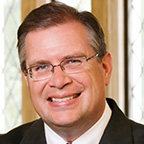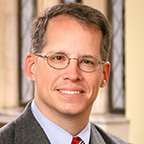Media Tip Sheet: University of Richmond Faculty Experts Available for Stories on Russia-Ukraine Conflict
UNIVERSITY OF RICHMOND — The University of Richmond has academic experts, including foreign policy, economics, and Russian culture scholars, available for interviews as you continue your coverage of the Russia-Ukraine conflict.
Featured experts include:
 Tom Arnold on economic impact
Tom Arnold on economic impact
Arnold, a finance professor in the Robins School of Business, can speak to how the war will impact financial markets.
“The situation in Ukraine threatens political stability and energy stability in Europe, said Arnold. “Russia is a major oil and natural gas supplier to Europe and sanctions being implemented due to Russia’s actions will stop the flow of energy to Europe. This means transportation costs for goods globally will increase and will likely create more inflation. Similar issues will also occur in the wheat and corn markets which are exports from the Ukraine-Russia region.”
Contact Cynthia Price, cprice2@richmond.edu, associate vice president for media and public relations, to connect with Arnold.
 Jeff Hass on political sociology and Russian culture
Jeff Hass on political sociology and Russian culture
Hass, a sociology professor, can speak to social change, economic and political sociology, and power and culture in Russia. Hass can speak to Putin’s background and political decisions.
“He had a group from St. Petersburg of the 1990s he trusted and took with him to Moscow in 1999-2000,” said Hass. “They emasculated any opposition — whether politicians or economic elites, the oligarchs — bit by bit until Putin and company were the last group standing. Even then, Putin has increasingly isolated himself with ‘yes-men.’”
Contact Sunni Brown, sbrown5@richmond.edu, director of media and public relations, to connect with Hass.
 Stephen Long on causes of war
Stephen Long on causes of war
Long, a political science and global studies professor, is a foreign policy and international relations scholar. Long’s expertise focuses on the causes of war, rivalries, and victory and defeat in war.
“It is increasingly clear that the Ukrainian government has staying power and is planning for a war of urban combat and guerilla insurgency against occupying forces," Long said. "Civilians are staying to fight, arming themselves, and organizing for sustained operations. President Zelensky is demonstrating leadership and resolve of the kind that make history."
Contact Sunni Brown, sbrown5@richmond.edu, director of media and public relations, to connect with Long.
 Janelle Peifer on the psychological effects of war
Janelle Peifer on the psychological effects of war
Peifer, a psychology professor, is an expert on trauma and resilience. Peifer can discuss how what we have read and know about trauma can help us anticipate mental health needs.
“Large scale traumas impact individuals in different, sometimes counterintuitive ways, including empathy/compassion fatigue and burn out,” said Peifer, who is incorporating the Russia-Ukraine conflict into her classes. “You have to examine these traumas from different viewpoints — from direct (citizens on the ground in the Ukraine who are being attacked) to secondary (emergency healthcare workers responding to scenes of death and destruction) to broad (everyone else).
Contact Sunni Brown, sbrown5@richmond.edu, director of media and public relations, to connect with Peifer.
Visit news.richmond.edu to learn more about these experts and others.
###
